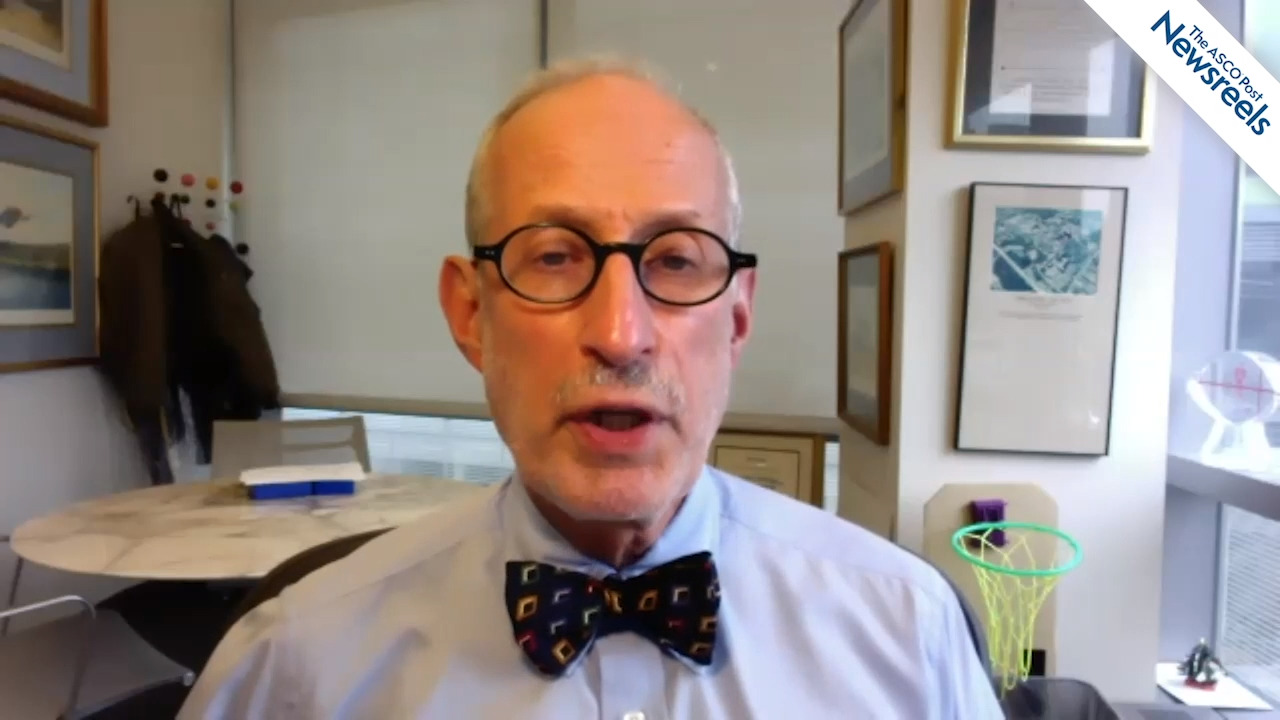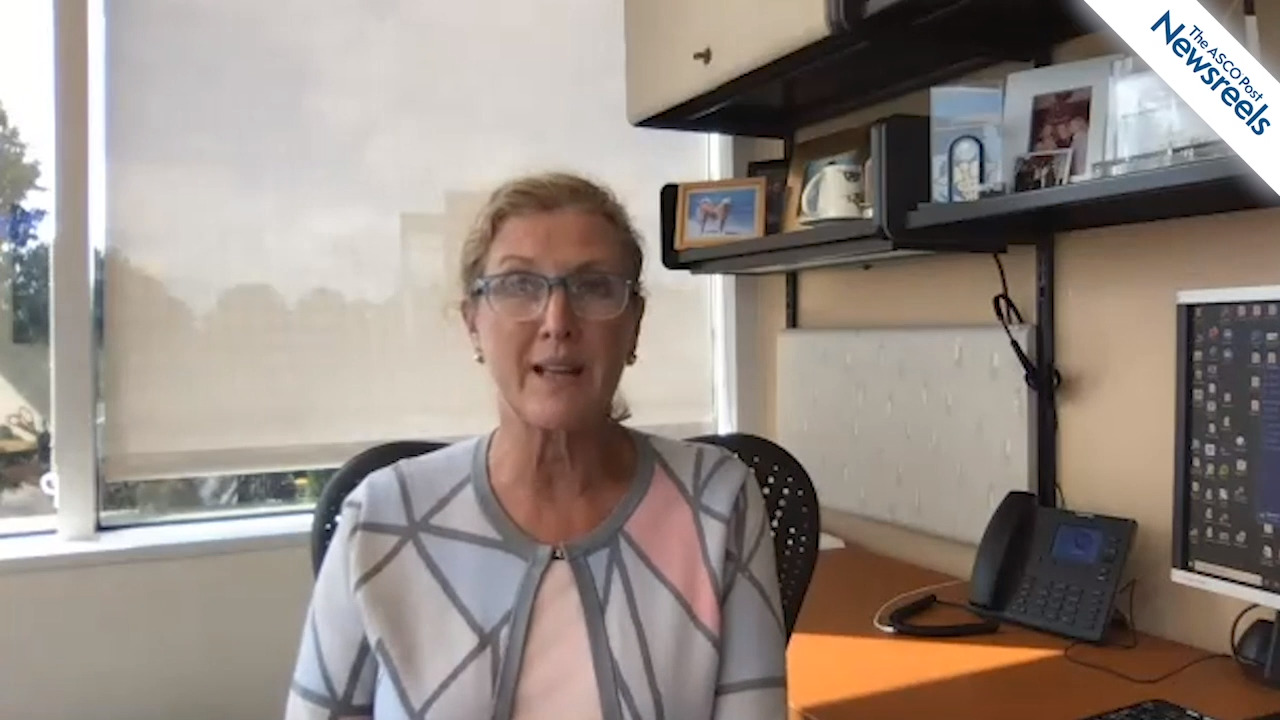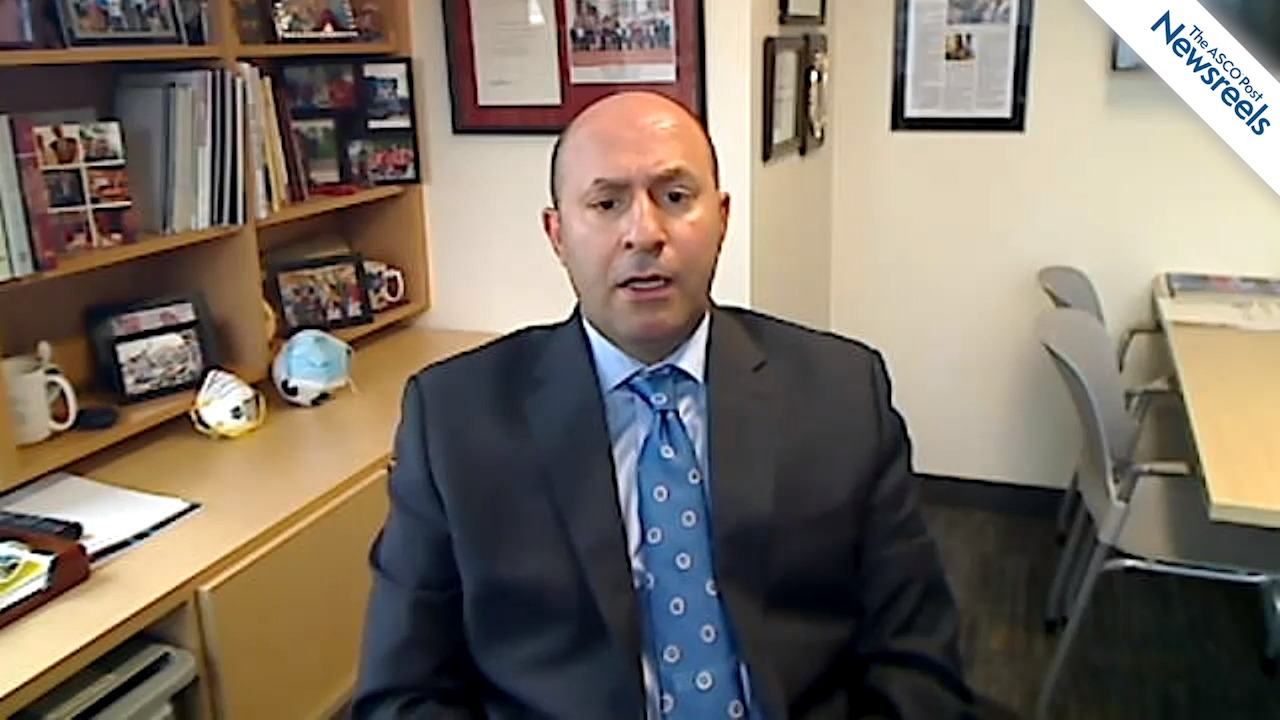Stephen R.D. Johnston, MD, PhD, on Early Breast Cancer: Abemaciclib in High-Risk Disease
ESMO Virtual Congress 2020
Stephen R.D. Johnston, MD, PhD, of The Royal Marsden NHS Foundation Trust, discusses phase III study findings from the global monarchE trial, which showed that when added to standard adjuvant endocrine therapy, abemaciclib is the first CDK4/6 inhibitor to improve invasive disease–free survival in hormone receptor–positive high-risk early breast cancer (Abstract LBA5_PR).
Read more on the monarchE trial in the Journal of Clinical Oncology.
The ASCO Post Staff
Jeffrey S. Weber, MD, PhD, of the Perlmutter Cancer Center, NYU Langone, discusses the 4-year recurrence-free and overall survival results from the CheckMate 238 study, which showed adjuvant nivolumab continues to be an effective treatment, vs the comparator ipilimumab, for patients with resected stage III/IV melanoma (Abstract 1076O).
The ASCO Post Staff
Erika P. Hamilton, MD, of Sarah Cannon Research Institute, discusses results of the nextMONARCH study, which indicated that combining abemaciclib with tamoxifen improved overall survival. Dr. Hamilton also details adverse events in different arms of the study (Abstract 273O).
The ASCO Post Staff
Lisa A. Carey, MD, of the University of North Carolina, discusses phase III results from two IMpassion trials, 130 and 131, which explored, respectively, atezolizumab plus nab-paclitaxel vs placebo plus nab-paclitaxel in previously untreated locally advanced or metastatic triple-negative breast cancer and first-line paclitaxel with or without atezolizumab for unresectable disease (Abstracts LBA15 and LBA16).
The ASCO Post Staff
Toni K. Choueiri, MD, of Dana-Farber Cancer Institute, discusses the first results from the phase III CheckMate 9ER trial, which suggested the combination of nivolumab and cabozantinib is safe. It showed activity in progression-free and overall survival, as well as in overall response rates and may have a place in treating patients with metastatic renal cell carcinoma (Abstract 696O_PR).
The ASCO Post Staff
Erica L. Mayer, MD, MPH, of Dana-Farber Cancer Institute, discusses an initial analysis of phase III findings from the PALLAS trial, which suggested the benefits observed in the metastatic setting with palbociclib plus endocrine therapy did not translate into the earlier adjuvant setting for patients with hormone receptor–positive, HER2-negative breast cancer. Long-term follow-up is ongoing (Abstract LBA12).





